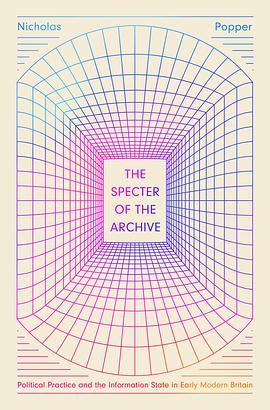The Specter of the Archive
Douban
Political Practice and the Information State in Early Modern Britain
Nicholas Popper
Sinossi
An exploration of the proliferation of paper in early modern Britain and its far-reaching effects on politics and society.
We commonly think of ourselves as living amid an unprecedented abundance of information. In The Specter of the Archive, Nicholas Popper shows that earlier eras had to grapple with similarly mixed blessings.
He reveals that early modern Britain was a society newly drowning in paper—for them a light and durable technology whose spread allowed statesmen to record drafts, memoranda, and other ephemera that might otherwise have been lost, and also made it possible for ordinary people to collect political texts. As the volume of original paperwork ballooned, the number of copies grew even more: secretaries took down version after version of letters, records, policy proposals, and other documents. As those seeking to advance their careers flooded the government with paper, information management became a core element of politics, and England’s history of flexible institutions coalesced into the image of a stable state. Focusing on two of the primary political archives of early modern England, the Tower of London Record Office and the State Paper Office, Popper traces the circulation of their materials through the government and the broader public sphere. In this early media-saturated society, we find the origins of many of the same issues we face today: Who shapes the archive? Can we trust the picture of the past and present that it shows us? How do we decide what to preserve, what to copy and disseminate, and what to discard? And, in a more politically urgent vein: Does a huge volume of widely available information (not all of it accurate) risk contributing to polarization and extremism?
contents
List of Illustrations
Acknowledgments
Introduction
1: Archivization
2: Pump and Circulation
3: Institutions Reimagined
4: Shared Practice and Rival Visions of the State
5: Information Warfare
6: Centralization and Orchestration
Epilogue: The World of the Archive
List of Abbreviations
List of Manuscripts and Manuscript Collections Cited
Notes
Bibliography
Index